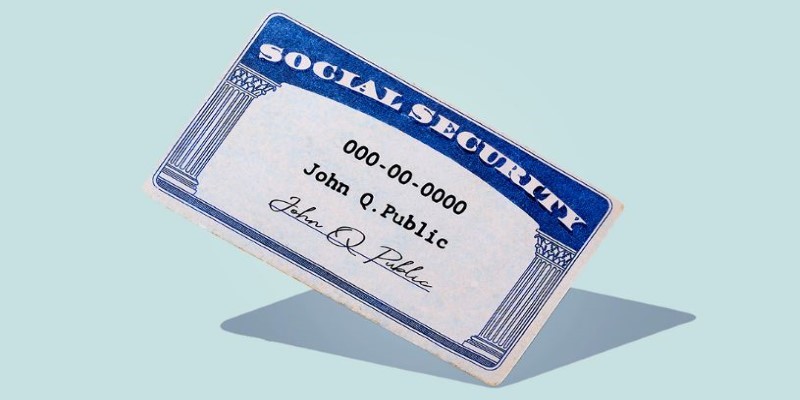What Are The Causes Of Hiccups: Surprising Triggers You Should Know
Hiccups are sudden contractions of the diaphragm that are difficult to manage. The diaphragm splits the chest from the tummy, goes down as you inhale, and comes up when you exhale. When an individual has hiccups, the diaphragm contracts and pushes downward, taking in air during breathing. After that, the airway is quickly closed to prevent additional air, resulting in a distinctive "hic" sound.
Hiccups typically go away on their own within a few minutes, but if they persist for days or weeks, that can indicate a serious problem. In that situation, you should seek professional help as soon as possible. But before that, don't forget to learn about all the major causes of hiccups in detail here!

What Are The Causes Of Hiccups?
Singultus is the scientific term used for hiccups. It is derived from the Latin word "singular," which means "to regain your breath while sobbing." Hiccups can occur due to various factors, some of which are health-related, and others are psychological. That’s because genuine stimulation occurs in the nerve that links the brain to the diaphragm. Below are the most common causes of hiccups:
Eating Food Too Quickly
Anything that causes the stomach to expand beyond its normal size, known as distension, could result in hiccups. Hiccups usually occur instantly after eating or drinking excessive quantities. The stomach, which lies directly beneath the diaphragm, expands. They disturb the diaphragm, allowing it to shrink like when we breathe in. The potential causes of a bloated stomach and hiccups include overeating at one time, acid reflux, eating too quickly, gas (because of sodas or fizzy drinks), and inhaling air when chewing gum, consuming food, talking, or drinking.
Hot Or Spicy Foods
Something leading to inflammation or extreme changes in the temperature of the esophagus may cause hiccups. It could be because the neurons instructing the diaphragm to tighten, inflamed, or aroused, producing the hiccup sound. The vagus and phrenic nerves are the two primary nerves that lie close to the esophagus. Due to their position in the body, eating and drinking might activate these nerves as a person bites and swallows. Things that stimulate the esophagus include spicy food like sauces, acidic foods (e.g., fizzy drinks, tinned tomatoes), garlic and onion, and coffee.
Environmental Factor
External variables influence your internal health. In addition to nerves, these variables may activate or upset the nerves controlling the diaphragm, resulting in hiccups during eating. External pressures that could cause hiccups include fear or worry, psychological grief or trauma, rapid absorption of breathing in cold air, sudden differences in temperature, like having a cold shower, and excitement or preparation for an important occasion or exam.

Medications
General anesthetic medicines used to relax you during surgery might occasionally produce hiccups. Other medicines that can cause chronic hiccups include azithromycin, a form of antibiotic; dexamethasone, a corticosteroid useful to manage swelling, allergies, asthma, osteoarthritis, blood problems, and adrenal illness. Besides that, mild doses of benzodiazepines to manage stress and seizures, dopamine agonists prescribed in the treatment of disorders of motion, including Parkinson's, and specific chemotherapy medications for cancer can also cause hiccups.
Central Nervous System
An infection or tumor in the CNS (central nervous system) or damage to the central nervous system from an accident could cause hiccups. Astrocytoma, cavernoma, and brain stem tumors, among others, have been stated to cause severe hiccups. Common neurological effects such as neuromyelitis optica, an inflammatory condition affecting the optic nerves and spinal cord, may induce uncontrollable hiccups.
Gastrointestinal and Abdominal Disorders
It is generally understood that GERD is frequently connected with a burp. A study was conducted on people who were suffering from GERD. The results revealed that 7.9% of males and 10% of females experienced hiccups. In addition, acid absorption as a challenging test confirmed the GERD-related hiccup, and some lengthy hiccups reacted positively to the use of proton pump inhibitors. The strong belching can sometimes lead to hiccups so that belching may cause hiccups in GERD patients. It's also surprising that helicobacter pylori infection has been identified as a cause of hiccups, which was confirmed by the effective removal of bacteria. The potential pathophysiology could be linked with higher acid generation after H. pylori infection, which may trigger esophageal mucosa disturbing vagal afferent.
Other Causes
In addition to the causes mentioned above, hiccups can also occur:
- When the metabolic rate changes or because of metabolic diseases, including hyperglycemia, hypoglycemia, and diabetes, along with liver and kidney issues
- Breathing-related issues such as diaphragmatic pleurisy, pneumonia, or asthma
- Diseases affecting the central nervous system, including encephalitis and migraines
- Conditions that stimulate the vagus nerve, such as meningitis, pharyngitis, or goiter
How To Get Rid Of Hiccups?
Sometimes, hiccups go away within a few minutes, while the situation may worsen other times. If you have common hiccups, you can get rid of it by:
- Stop your breath for a little moment
- Drink cold water.
- Put a strain on your eyes.
- Pull your tongue.
- Bite a lemon slice.
- Breathing in a paper bag.
- Eat a small amount of sugar.
- Drink or chew chilled water.
You must consult a doctor if you have ongoing or persistent hiccups because they may affect you badly. Your doctor will examine you and suggest medicines accordingly. Sometimes, prescribed medicines are helpful, but surgery is the last option if not.
Conclusion:
Hiccups typically subside as quickly as they start. However, hiccups may persist longer and cause trouble with eating, sleeping, breathing, swallowing, and speech. Hiccups are produced by discomfort or harm to the nerves that aid your diaphragm to contract, especially the vagus and phrenic nerves. Besides that, medications, damage to the central nervous system, hot and spicy food, eating habits, and environmental factors can cause hiccups. If you have hiccups for over a minute, consider a home treatment like pausing your breath, sipping water, and breathing into a paper bag. If they stay longer than 48 hours, consult your doctor.












